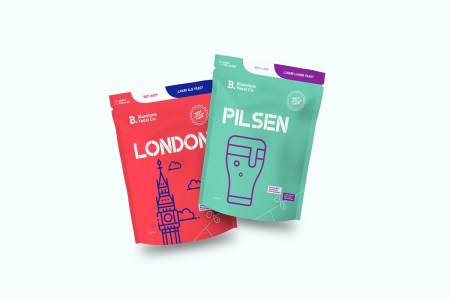
According to Derek Lacey, the microbiologist, beer lover and founder of Bluestone Yeast, many of today’s backyard brewers are as adept in their craft as their professional counterparts.
So the fact his company, the first Australian enterprise to produce and supply live liquid yeast to the country’s craft breweries, is now offering a range of 120ml live yeast packs for home brewers is cause for celebration.
“While they might not be doing it professionally, a good portion of home brewers out there have a level of knowledge, expertise and passion rivalling that of many pro-brewers. In recognition of this, we wanted to make the same ingredients available to them as the pro brewers have,” Derek said, who’s a keen home brewer himself.
Bluestone’s new range comprises 10 of their most popular yeast strains (see below for details) and positions home brewers a step closer to replicating the beer quality of their favourite craft breweries.
Derek said pitching live liquid yeast has a number of advantages over dried yeast.
“Typically, you’ll find liquid yeast produces lower fusel alcohols; lower levels of acetaldehyde, which produce off flavours; and superior, enhanced esters, which produce crisper, fruitier notes.”
He added that freshness is another reason domestically-produced liquid yeast can produce superior brews.
Unlike some yeast producers, Bluestone Yeast stamps its packs with a production date, so brewers can be confident they’re pitching a sufficient number of live yeast cells.
With over 200 billion live yeast cells in each pack, brewers can pitch the yeast without needing to make a starter. Brewing with so much fresh yeast also makes repitching a viable option.
“Repitching is a great way to make your yeast go a few extra rounds, which ends up a bit easier on your hip pocket.”
Each yeast strain is packaged in a pre-sterilised nutrient solution of water, malted barley, autolysed yeast extract amino acids and trace minerals, to ensure the yeast reaches the brewer in peak condition.
The strains:
London: A true top-cropping strain with a light, fruity and softly-balanced palate. It has a wonderful malt and hop profile and will finish slightly sweet.
Michigan: Perfect for strong, well-balanced IPAs. It produces stone fruit esters that pair well with citrus hops.
Oslo: A phenomenal wort attenuator that produces super-clean beer in just a few days. Keeping it hot is the key to getting beer finished in a quick time without any off flavours.
Munich: A strain traditionally used to build wheat beers where a big banana aroma is required balanced with mild clove.
San Diego: With a nice clean character, this strain performs well at standard ale temps. For exceptionally crisp ales try brewing between 14-16ºC.
Bergen: Used in the production of Norwegian farmhouse ale, this strain is a fast fermenter with good attenuation, a light earthy spiciness, marked tartness and a unique ‘orange peel’ ester profile.
Stuttgart: If you want a crisp lager, this strain’s for you. Stuttgart can produce clean “pseudo lagers” at ale temperatures, but also works as a traditional lager strain down to the low teens.
Pilsen: Good flocculation with low sulphur and diacetyl. Clean fermentations produce amazing bock, helles, pilsner, dunkles and just about any other lager style you throw its way.
New England: Juicy and fruity, this is the strain for East Coast IPAs. The ester profile brings out the aromas and flavours of modern hop varieties to create a beer that is greater than the sum of its parts.
Cologne: Clean and crisp, perfect for a German Kölsch and other delicate, light-coloured beers. Improved flocculation characteristics make for brighter beers in a shorter amount of time.
